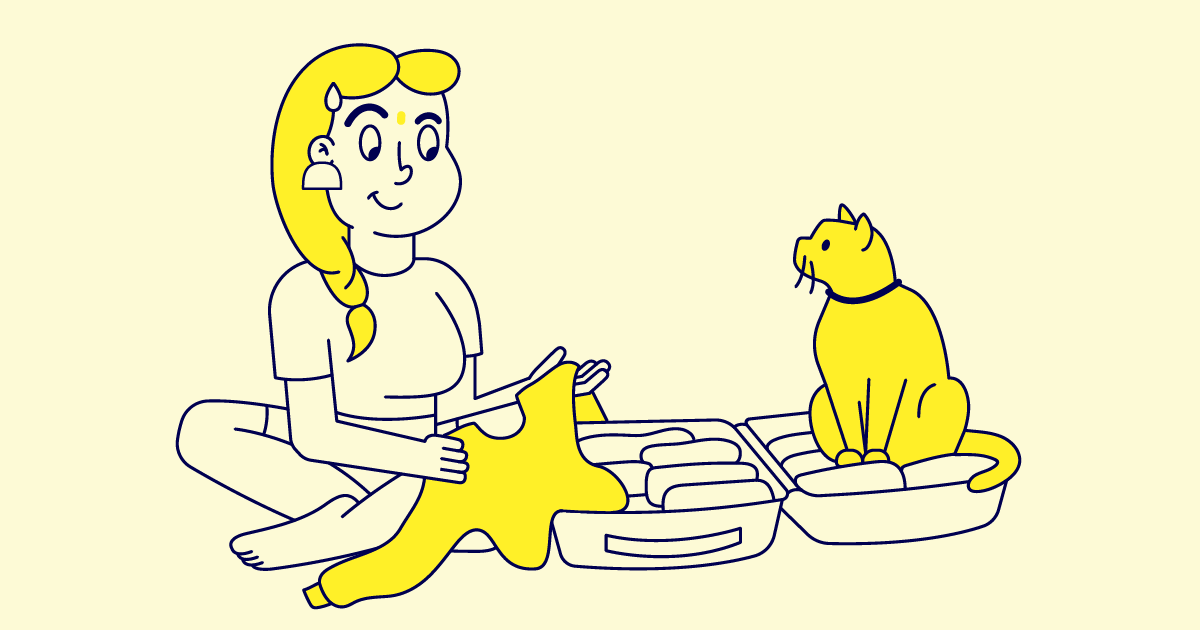It is a commonly held belief that extended time off can help to decrease work-related stress and improve work motivation. This is backed by research: a study by Westman and Etzion (2001) links vacationing to a decreased likelihood of developing burnout and other stress-related issues. So it makes sense to try and get the most positive effect from your time off.
However, many notice that precious days of their hard-earned holidays are wasted to “recover” from the stressful weeks before them. Not only do many feel that the weeks ahead of the vacation are stressful, sometimes it can take days if not weeks to finally feel relaxed and be able to enjoy their freedom.
Read on for tips to help you get into the right mindset so you won’t feel like half of your holiday is spent still feeling stressed.
A good holiday time starts in the weeks leading to it!
Many experience several stressful weeks leading to their holiday (Zehrer & Crotts, 2012). Research has even found a decrease in health measures, such as self-reported mood, tension and health status, within the two weeks leading up to the vacation time (Nawijn, De Bloom & Geurts, 2013). This is most likely caused by our increased workload leading up to the vacation. Not only are we trying to complete our regular work, but we also want to prepare for the time we are not there. This means that we need to communicate our time off clearly and early enough to those who may be affected by it. Your colleagues and clients will appreciate knowing in advance when you won’t be available. Communication with your colleagues and preparation of the tasks that need delegating is important. You probably have had the experience of taking over work from colleagues while they were on holiday and noticed how frustrating it can be if you don’t have all the information or tools you need to complete the tasks. Don’t be that colleague.
Make concrete plans, but not too many
Holidays are precious and it feels good to make plans for them. Many, however, make too many plans and end up not being able to do everything they planned. Feeling stressed with traveling and planning is another factor that can diminish the relaxing effects vacations are supposed to have (Zehrer & Crotts, 2012).
Instead of having a long (mental) list of all the things you want to do, people you want to visit and countries you want to explore, pace yourself. I suggest writing down holiday plans and adding times to each item to get an overview of how long it will take to get the most out of each experience. This may mean that you won’t be able to visit all friends in their different countries this year, but it will reduce your stress and you will feel good about actually being able to do the activities you planned for. This type of expectation management can improve the relaxing effects you want to get from your holidays.
Set boundaries about additional tasks
Most likely you know the feeling of stress that rushes over you when you notice yet another task being added to your desk when you are about to go on your holidays. That is a feeling all of us could do without. A good way to prevent this from happening is by setting boundaries. Let your surroundings clearly, but compassionately, know if you don’t have time to complete certain additional tasks during the weeks leading up to your time off. Remember that this won’t just benefit you. Neither the person who is asking you to complete the task, nor your holiday replacement appreciates it if the task is not completed, or if yet another task is added to the pile on the desk. If setting boundaries externally is difficult for you, I suggest that you prepare statements to help yourself communicate your needs when these situations come up. For example a statement such as “Unfortunately I won’t be able to do this. I won’t have time to give the task the attention it deserves” will politely but clearly communicate your boundaries.
Set boundaries with yourself
Finally, you also need to set boundaries for yourself. In the weeks leading up to the holidays, your stressed mind may tell you to check your emails in bed or at the dinner table. It may also tell you to work extra hours and skip your lunch break. That is not helpful. Breaks and regular time off is important to maintain productivity at work (Fritz, Ellis, Demsky, Lin & Guros, 2013). I recommend that you put your phone and work laptop out of sight during your time off. This way you can decrease the amount of additional stress you need to make up for during the beginning of your holidays (Eden, 1990). Be wary of how work can creep into your free time and address these behaviours. It’s worth it!
I hope these tips will help you to have a lovely summer.
If you think that stress is an issue that keeps creeping up on you, the packages Stressed Out and Leading Me can be a great way to address it and learn some new helpful ways of dealing and even preventing it.
References
Eden, D. (1990). Acute and chronic job stress, strain, and vacation relief. Organizational Behavior and
Human Decision Processes, 45(2), 175-193.
Fritz, C., Ellis, A. M., Demsky, C. A., Lin, B. C., & Guros, F. (2013). Embracing work breaks.
Organizational Dynamics, 42(4), 274-280.
Nawijn, J., De Bloom, J., & Geurts, S. (2013). Pre-vacation time: Blessing or burden?. Leisure Sciences,
35(1), 33-44.
Westman, M., & Etzion, D. (2001). The impact of vacation and job stress on burnout and absenteeism.
Psychology & Health, 16(5), 595-606.
Zehrer, A., & Crotts, J. C. (2012). Vacation stress: The development of a vacation stress model among
US vacation travelers. Tourism Review.
Writer:

Margaretha Madoures
BSc. and MSc. Psychologist and relaxation therapist. I believe in a flexible, client-focused approach to my work and actively help people to find immediately practical solutions for their issues with tools that work for them. I have a special passion for helping my clients in achieving a balanced approach to work and down time, which ensures constant and sustainable productivity. Together we try out different techniques that we adjust and "troubleshoot" over the course of the sessions. Independent of where my clients start, they will leave the sessions with a variety of psychological tools to help them cope better at work and in their private life.





